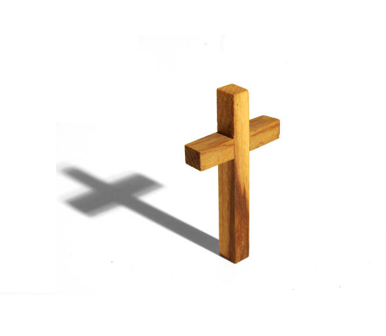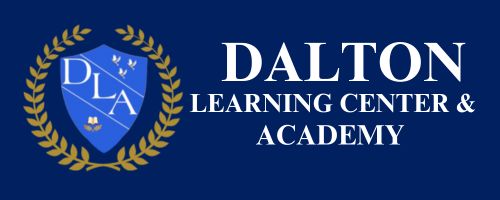Schedule a Tour
[cws-row cols=312 id=”cols312″][col span=4][cws-widget type=accs title=”” items=6][item type=accs title=”Kindergarten”]
[/item][item type=accs title=”First Grade”]
[/item][item open=1 type=accs title=”Second Grade”]
[/item][item type=accs title=”Third Grade”]
[/item][item type=accs title=”Fourth Grade”]
[/item][item type=accs title=”Fifth Grade”]
[/item][/cws-widget][/col][col span=8][cws-widget type=text title=”
Second Grade @ Dalton Learning Academy“]

Welcome to Second Grade
Dear Parents,
As your child prepares for a different and exciting new year in Second Grade, we are giving you a list of suggested school supplies and uniforms for the 2020-2021 school year.
UNIFORMS
Provided in your packet but can also be found in the website below
– https://www.frenchtoast.com/schoolbox/schools/dalton-learning-center-QS61C2M
Face shield is mandatory for ages 3 and up. It can be found at Amazon.
SUPPLY LIST
- 1 Bible (NKJV)
- 1 Dictionary
- 1 Back pack (without wheels)
- 1 11”x17” zipper pencil bag (pouch)
- 5 Marble composition notebook
- 5 two-pocket folders
- 1 pack white lined paper
- 1 24 pack no.2 yellow pencils
- 1 Box of dry erase markers (expo)
- 1 Glue (liquid) bottle
- 5 (large) glue sticks
- 1 Scissors
- 1 pack index cards
- 2 Box of 24 crayons
- 1 Box of colored pencils
- 1 box washable markers
- (Crayola preferred)
- 2 big “pink pearl” eraser
- 1 set of watercolors
- 2 box of tissues
- 1 (big bottle) hand sanitizer
- 2 bottles of anti-bacterial Liquid soaps
- 1 letter size clip board
- 1 container of Clorox wipes (no Lysol brand due to allergies)
- Expect to have and replenish throughout the school year as needed.
- Personal Items MUST be labeled.
Reading
The student…
- Blends sound components into words and applies knowledge of beginning letter (onsets) and spelling patterns (rhymes) in single and multi-syllable words.
- Uses a variety of structural cues to decode unfamiliar words.
- Uses a variety of context clues (ex. illustrations, diagrams, information in the story, titles and heading, sequence) to construct meaning (meaning cues).
- Uses context cues to define multiple meaning words.
- Uses a variety of strategies to comprehend text (ex., inference, self-monitoring, predicting, retelling, discussing, and restating ideas).
- Uses knowledge of contractions, base words, prefixes and suffixes, compound words to determine the meaning of words.
- Uses resources and references to build upon word meanings (ex., dictionaries and glossaries)
- Uses a variety of strategies to comprehend text (ex. self-monitoring, predicting, retelling, discussing, restating ideas).
- Summarizes information in texts (including, but not limited to, central idea, supporting details, connections between texts).
- Uses specific ideas, details, and information from text to answer literal questions.
- Makes connections and inferences based on text and prior knowledge (ex., the order of events, possible outcomes).
- Understands similarities and differences across texts.
- Reads informational text for specific purposes.
- Alphabetizes words according to the first and second letter.
- Locates information in simple reference materials.
- Understands the difference between fact and opinion.
- Knows comprehension strategies and can apply while reading.
Writing
The student…
- Uses knowledge of sentence composing to be able to start a sentence with a capital letter and end a sentence with the correct punctuation mark.
- Beginning to use the 6 traits of the writing process.
- Can compose a complete sentence using sentence expanding skills.
- Can write a 3 paragraph narrative or expository piece of writing to go along with a given topic idea and or prompt.
Mathematics
The student…
- Can count by 2s, 5s, and 10s & describes patterns
- Can solve problems that involve repeated addition
- Can solve addition number stories
- Finds equivalent names for numbers
- Knows addition and subtraction facts with quick recall
- Can identify relationships between the digits and their place values
- Can add three 1 digit numbers mentally
- Knows what the complements of 10 are
- Find missing addends for the next multiple of 10
- Can solve number grid puzzles
- Can multiply numbers with a 0 or 1 as a factor
- Can identify and name numbers through the thousands
- Uses equivalent coins to show money amounts in different ways
- Exchanges pennies, nickels, dimes and quarters
- Can tell time to five-minute intervals
- Can compare and order multi-digit numbers through the thousands
- Can develop quick recall of addition and related subtraction facts and fluency with multi-digit addition and subtraction
- Can develop an understanding of linear measurement

Dalton Learning Center/Academy
2601 SW Port St. Lucie Blvd Port St. Lucie, FL 34953
Daltonlearningacademy.com
daltonlearningacademy@gmail.com, daltonlearningcenter@gmail.com
( 772) 337-8160

Copyrights @2016 - Dalton Learning Center
